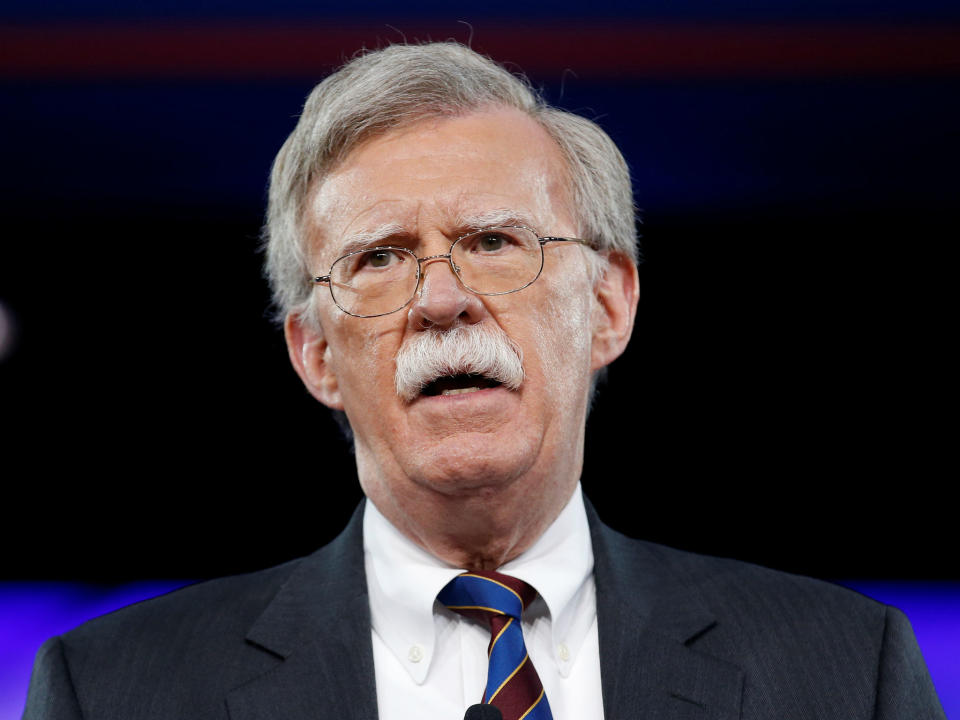John Bolton joins Trump's White House bringing hardline views on Iran and North Korea – but will he last?

“There will always be change,” those were President Donald Trump’s words last week when asked about the likelihood of more staff turnover at the White House – how right he was.
The make-up of the White House, and his administration, is now much different to what it was less than a month ago. Starting with the resignation of White House communications director Hope Hicks and another communications aide at the end of February, Trump has either fired, or seen resign, Secretary of State Rex Tillerson, economic adviser Gary Cohn and his own personal assistant John McEntee. One of Trump’s personal lawyers, John Dowd, also resigned hours before Trump’s tweet announcing the hiring of John Bolton to replace HR McMaster as national security adviser.
Surprise over the speed at which Trump is modifying his team has long since abated, replaced with constant speculation about who might be next. General McMaster, who is said by the White House to have “mutually agreed” with Trump to resign, has been a constant feature of those stories – especially since other supposedly more moderate influences such as Tillerson and Cohn have also been forced out. The fact that Bolton will be Trump’s third national security adviser in 14 months, with Michael Flynn being the other, shows that there may indeed be constant change in this White House.
While how moderate Tillerson and Cohn were is up for debate, there is no doubt that Bolton will be a hardline influence. He served in a number of positions at various points in the administrations of Ronald Reagan, George HW Bush and George W Bush. His most high profile role was that of US Ambassador to the United Nations between 2005 and 2006, where he was known for being blunt and left his post ahead of a possible tough confirmation hearing.
On foreign policy Bolton was a staunch supporter for the war in Iraq, something he still believes he was right to push for. He has been tough on Russia and also come out in support of military action against North Korea and Iran, with regime change being something he has never shied away from.
For many critics, such hawkish views help make him an awful choice for the job he has been handed, particularly with possible North Korea talks on the horizon.
For Trump, whose White House has praised his ability as a security expert, Bolton ticks a number of boxes. His opposition to the Iran nuclear deal fits in Trump’s wish to be re-negotiate it or pull out. The President’s pick for Secretary of State, Mike Pompeo, the CIA director, is also against the Iran deal. That will make a powerful combination, although where it leaves Defense Secretary James Mattis, who was a big ally of Tillerson is open to debate.
Bolton has had experience in a number of administrations, but is best known recently as a Fox News analyst. That too will appeal to Trump, who has picked long-time CNBC contributor Larry Kudlow to become his next top economic adviser to replace Cohn. Bolton’s media personality may be more amenable to the President, who is said to have seen General McMaster as “gruff”.
But Bolton can also be seen as an intriguing choice, given that Trump sees the Iraq war as a colossal mistake, and has often talked of the need for non-interventionist policies. The President has removed others for such disagreements before.
Perhaps tellingly, Bolton suggested to Fox News in an interview in the wake of his hiring that the word of the President is most important.
“I’ve never been shy about what my views are, but frankly what I have said ... Is behind me at least effective 9 April [when he starts the job]” he said. “The important thing is what the President says and what advice I would give him”.
Bolton is seen as a hawk’s hawk and will probably push for a hardline stance over Iran and North Korea, but whether that actually becomes a reality is difficult to say. The bigger question may be whether Bolton will last in the role. While Trump clearly sees someone he thinks will work well for him, Bolton has many critics and that may end up working against him in this White House.

 Yahoo Finance
Yahoo Finance 